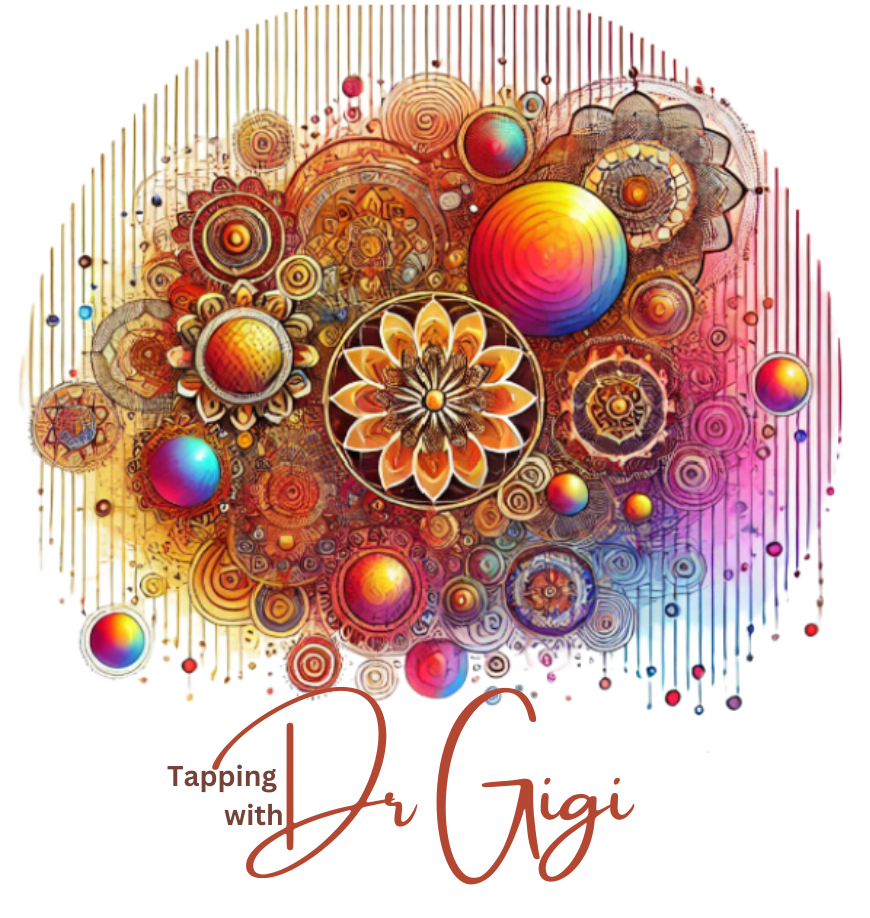Anxiety and depression have become widespread mental health issues affecting millions of people worldwide. Traditional therapeutic methods like cognitive-behavioral therapy (CBT), medication, and talk therapy are commonly used to treat these conditions. However, in recent years, energy psychology therapy has gained recognition as a practical approach to managing and treating anxiety and depression. This form of treatment integrates Eastern healing traditions, such as acupuncture and yoga, with modern psychology to address emotional and psychological issues by working with the body’s energy system.
Energy psychology therapies, such as emotional Freedom Techniques (EFT), Thought Field Therapy (TFT), and Tapas Acupressure Technique (TAT), involve tapping on specific points of the body while focusing on emotional distress or traumatic memories. These techniques are based on the premise that negative emotions and traumatic experiences create blockages in the body’s energy system, and by addressing these blockages, individuals can experience relief from emotional distress.
This blog will explore the role of energy psychology therapy in treating anxiety and depression, examining its techniques, scientific evidence, benefits, challenges, and growing popularity in the realm of mental health care.
Understanding Anxiety and Depression
Before delving into the specifics of energy psychology therapy, it’s essential to understand the nature of anxiety and depression, the two mental health conditions that are most frequently addressed through this therapeutic approach.
1) What is Anxiety?
Anxiety is a natural stress response and can serve as a protective mechanism when individuals face real danger. However, when anxiety becomes chronic or disproportionate to the situation, it can evolve into a debilitating condition. Common symptoms of anxiety include:
- Excessive worry or fear
- Difficulty concentrating
- Irritability
- Restlessness or nervousness
- Sleep disturbances
- Physical symptoms such as headaches, muscle tension, and fatigue
Anxiety disorders encompass a variety of conditions, such as generalized anxiety disorder (GAD), panic disorder, social anxiety disorder, and specific phobias. These disorders often interfere with daily life, work, and relationships, leading individuals to seek professional help for relief.
2) What is Depression?
Depression, on the other hand, is a mood disorder characterized by persistent sadness, loss of interest in activities, and an inability to carry out daily tasks. Symptoms of depression include:
- Prolonged feelings of sadness or hopelessness
- Lack of energy and fatigue
- Changes in appetite and sleep patterns
- Difficulty concentrating or making decisions
- Feelings of worthlessness or guilt
- Suicidal thoughts or behaviours
Various factors, including life events, genetic predispositions, chemical imbalances in the brain, and chronic stress, can trigger depression. Left untreated, depression can have severe consequences on an individual’s quality of life.
What is Energy Psychology Therapy?
Energy psychology therapy is a family of therapeutic methods focusing on the body’s energy system to address psychological issues. The fundamental concept is that emotional distress, trauma, and negative experiences disrupt the flow of energy within the body, leading to physical, emotional, and psychological symptoms. Energy psychology aims to restore balance by using techniques that manipulate the body’s energy fields.
Some of the most commonly used energy psychology therapies include:
- Emotional Freedom Techniques (EFT): Often referred to as “tapping,” EFT involves tapping specific acupressure points on the face, head, and body while focusing on a particular emotional issue. This helps to release blocked energy and reduce emotional intensity.
- Thought Field Therapy (TFT) is similar to EFT but more structured, with different tapping sequences for various emotional and psychological problems.
- Tapas Acupressure Technique (TAT): TAT involves gently holding specific acupressure points on the head while focusing on a traumatic memory or emotion, allowing the body to release the emotional charge associated with the memory.
These techniques blend Eastern energy meridians and chakras concepts with modern psychological interventions, creating a holistic approach to emotional healing.
How Energy Psychology Therapy Works
Energy psychology therapy operates on the principle that psychological issues are stored in the body’s energy system. When an individual experiences trauma, stress, or emotional distress, these experiences create blockages or imbalances in the body’s energy flow. This can manifest as physical symptoms, emotional pain, or psychological issues.
By stimulating specific points on the body’s energy meridians (similar to acupuncture points), energy psychology therapies seek to release these blockages and restore balance to the system. The process typically involves the following steps:
1) Identification of Emotional or Psychological Issues
The first step in energy psychology therapy is identifying the specific emotional or psychological issue the individual wants to address. This could be anxiety, depression, a traumatic memory, or a particular phobia. The therapist guides the individual in focusing on the issue, bringing it into conscious awareness.
2) Tapping or Stimulation of Energy Points
Once the issue is identified, the therapist instructs the individual to tap on specific facial, head, and body points, following a prescribed sequence. In some cases, the therapist may gently hold particular acupressure points, as in the case of TAT.
3) Verbalization of Emotions
During tapping, the individual is encouraged to verbalize their emotions, thoughts, or memories associated with the issue. This helps to bring the emotional charge to the surface, allowing it to be processed and released.
4) Cognitive Restructuring
As the tapping continues, the individual may experience shifts in their emotional state, such as reduced anxiety, fear, or sadness. Cognitive restructuring occurs as the brain rewires itself in response to the emotional release, allowing the individual to adopt new, healthier thought patterns and beliefs.
Scientific Evidence Supporting Energy Psychology Therapy
While energy psychology therapy may seem unconventional to some, there is growing scientific evidence supporting its effectiveness in treating anxiety, depression, and trauma-related conditions. Several studies have been conducted to evaluate the efficacy of EFT and other energy psychology techniques in clinical settings.
1) Studies on EFT for Anxiety and Depression
One study published in the Journal of Nervous and Mental Disease found that EFT significantly reduced symptoms of anxiety in individuals who participated in a group treatment program. The study demonstrated that EFT produced lasting reductions in anxiety levels, even after a six-month follow-up period.
Similarly, a study published in the Journal of Clinical Psychology examined the use of EFT for individuals with clinical depression. The results showed that participants who received EFT treatment experienced significant reductions in depressive symptoms compared to those who received traditional psychotherapy.
2) Neurobiological Mechanisms
Research on the neurobiological mechanisms of energy psychology therapies suggests that tapping on acupressure points can help regulate the brain’s stress response. Tapping on these points while focusing on a distressing memory or emotion reduces activity in the amygdala (the brain’s fear centre) and the hippocampus(the memory-processing centre). This reduction in activity allows the brain to reprocess traumatic memories without triggering the fight-or-flight response, leading to a decrease in anxiety and emotional distress.
3) Heart Rate Variability and Stress Reduction
Another study explored the effects of EFT on heart rate variability (HRV), a measure of the body’s stress response. The study found that EFT significantly improved HRV, indicating a reduction in stress and a shift toward a more relaxed physiological state. This is particularly relevant for individuals with anxiety and depression, as chronic stress often contributes to these conditions.
Benefits of Energy Psychology Therapy for Anxiety and Depression
Energy psychology therapy offers several advantages for individuals struggling with anxiety and depression. Some of the key benefits include:
1) Non-Invasive and Drug-Free
One of the most appealing aspects of energy psychology therapy is that it is non-invasive and drug-free. Unlike medication-based treatments for anxiety and depression, which can have side effects, energy psychology therapies rely on the body’s natural energy system to promote healing. This makes it a safe and accessible option for individuals who prefer a holistic approach to mental health care.
2) Rapid Results
Many individuals who undergo energy psychology therapy report experiencing rapid improvements in their emotional well-being. While traditional talk therapy may take months or years to produce significant changes, energy psychology techniques often lead to noticeable reductions in anxiety, fear, and sadness within just a few sessions.
3) Effective for Trauma and PTSD
Energy psychology therapy has been particularly effective in treating individuals with trauma and post-traumatic stress disorder (PTSD). By addressing the energy disruptions caused by traumatic memories, therapies like EFT and TFT help individuals release the emotional charge associated with the trauma, allowing them to move forward without being overwhelmed by intrusive memories or flashbacks.
4) Improves Emotional Regulation
One of the long-term benefits of energy psychology therapy is improved emotional regulation. Individuals who undergo treatment often find that they are better equipped to manage stress, anxiety, and emotional challenges in their daily lives. This leads to greater resilience, improved mental health, and a more balanced emotional state.
Challenges and Criticisms of Energy Psychology Therapy
While energy psychology therapy has gained popularity and demonstrated effectiveness, it is not without its challenges and criticisms. Some of the common concerns include:
· Skepticism and Lack of Awareness
Despite growing evidence of its effectiveness, energy psychology therapy is still relatively unknown in some parts of the mental health community. Many therapists and mental health professionals are unfamiliar with these techniques or remain sceptical of their scientific validity. As a result, individuals seeking treatment for anxiety and depression may have difficulty finding qualified practitioners who offer energy psychology therapies.

